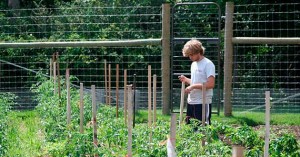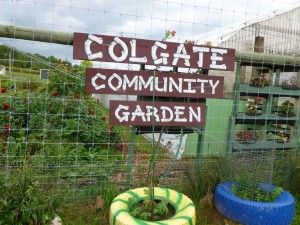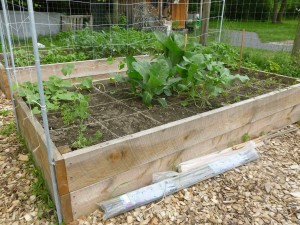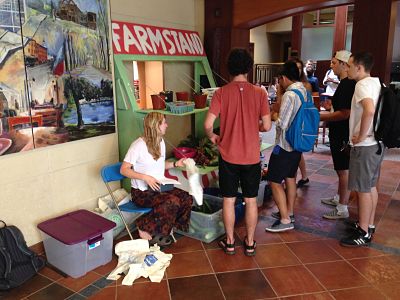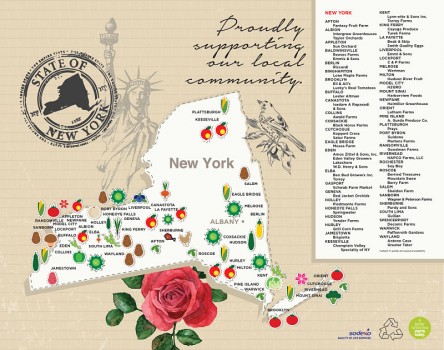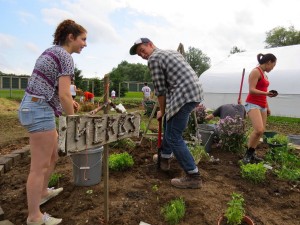Update: January 19, 2015
It’s official. Despite the polar vortex in the United States, 2014 was the hottest year on record. As temperatures and emissions continue to rise, dialogue continues about whether or not to build the Keystone XL pipeline which would open up a new frontier of dirty energy.
Update: March 19, 2014
The American Association for the Advancement of Science (AAAS), America’s premier scientific society, warned the world is at growing risk of “abrupt, unpredictable and potentially irreversible changes” because of a warming climate. As a scientific body, the AAAS rarely intervenes on policy issues. However, in their new report, What We Know, they stated, “We consider it our responsibility as professionals to ensure, to the best of our ability, that people understand what we know: human-caused climate change is happening, we face risks of abrupt, unpredictable and potentially irreversible changes, and responding now will lower the risks and costs of taking action.”
Click here to get the facts from AAAS.
Originally published on March 3, 2014
Last month, Pew Research Center released its latest poll results of American viewpoints on climate change. The results are worrying. According to the poll, 67% of Americans believe that there is solid evidence of global warming while only 44% believe that human activities are responsible. On the contrary, 97% of climate scientists agree that global warming over the past century is due primarily to human activities. Clearly, the public is far behind the science on this issue.
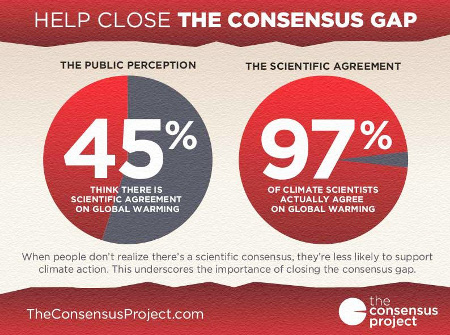
Understanding climate change is not only about climate modeling and predicting the future. It is also about historic data and recent trends. Since the 1970s, the rate of global warming has tripled. The 2000s were warmer than the 1990s and the 1990s were warmer than the 1980s. Moreover, nine of the top ten warmest years on record have occurred since the year 2000. And 2013 was the 37th year in a row with above average global temperatures.
But what about this winter? Polar vortex became part of our vernacular and below freezing temperatures have been common and sustained. But if you look across the country and the globe, the warming trend has continued. At the same time we were experiencing -15 degree temperatures in central New York, regions in Alaska were recording temperatures above 60 degrees. That is unheard of. Also, California has been in a record drought, the Northwest has experienced above average temperatures, Sochi hosted one of the warmest Winter Olympics on record, Australia experienced temperatures over 120 degrees, and the U.K. suffered through unprecedented flooding. In fact, NASA’s Goddard Institute for Space Studies just reported that January 2014 was the 3rd warmest January on record going back to 1880.
This warming trend has not been benign. Over the past three years, 80% of U.S. counties have been severely impacted by weather-related events and the burden to U.S. taxpayers is taking its toll. Superstorm Sandy, for example, cost us over $60 billion. In 2013, there were over 41 weather events that cost $1 billion or more in damage. That is an all-time high breaking the record from 2010. The National Flood Insurance Program is currently $25 billion in debt (it is a $30 billion program) and on the brink of insolvency. The Crop Insurance Program is generally a $3-$4 billion per year program. However, in 2013, tax payers shelled out over $11 billion. This was due in large part to severe droughts in the mid-West which also drove up corn and food prices across the country. Despite all of this, the American public remains complacent on climate change. Out of 20 public policy issues tested in the Pew poll, climate change ranked 19th in the order of importance among Americans.
Until the American public catches up with the science, we may lack the resolve to adequately address climate change. We need to get past climate denial and start aggressively working to reduce carbon emissions. At the same time, we also need to adapt to climate change that has already been locked into the system due to past emissions.
Here at Colgate, we are taking action on climate change. Since 2009, we have reduced our emissions by over 20% and our recently approved Campus Master Plan recommends significant climate-adaptation strategies to overcome flooding and changing weather patterns. These actions will better prepare us to thrive in a changing world.


